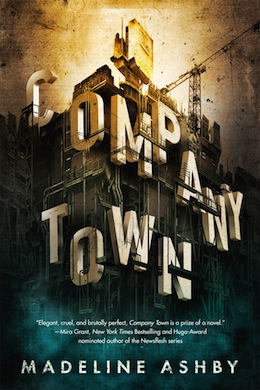I did not expect to be the kind of person who wakes up early for bootcamp. And really, I’m not that kind of person at all. Most mornings, the asthmatic bookworm in me riots in protest of my crawling out of bed and pulling on my leggings. She is my inner child and the most athletic thing she ever did was theater camp. She remains deeply suspicious of physical activity; she remembers asthma attacks, migraines, coughing so hard she threw up. She remembers being picked last for every team—except for dodgeball, because she was too short to be hit reliably and remained standing at the end of most rounds. “This wasn’t supposed to happen,” she says. “Adulthood wasn’t supposed to be like this. Why do we still have to go to gym?!”
She says it during burpees. She says it during mountain-climbers. She says it during push-ups and squats and lunges. She says it crunching through the snow and in the thick summer heat. She says it while we try on clothes. She says it when we see ourselves in the mirror.
I remind her that being an adult means choosing some of the pain that you’re in. In one of my favourite books, What I Talk About When I Talk About Running, Haruki Murakami says: “An unhealthy soul requires a healthy body.” He was talking about his experience of being a novelist, of un-corking the “poison” within himself and letting it rise up and into his work. Writers draw on all life experiences, even (especially) the bad ones. To keep those poisonous memories and emotions from permeating him and his life, Murakami felt compelled to sweat them out, the way the body does any other toxin.
I took up bootcamp while re-writing and editing my latest novel, Company Town. It tells the story of Go Jung-hwa, a half-Korean bodyguard for the United Sex Workers of Canada. She lives on a city-sized oil rig 500 km from St John’s, Newfoundland. Having once dreamed of re-patriating to Korea with her half-brother via the army, Hwa keeps up her fitness long after his death. She even becomes a fitness instructor, and part of her new job for the company who buys her town (see what I did, there?) is teaching adolescent genius Joel Lynch how to defend himself and how to keep himself healthy.
Writing about the body at work is uniquely difficult. There are certain things most readers will understand: the icy cold wash of fear through the stomach, the sweet hot ache of arousal, the empty grasping fist of hunger, the sting of sudden and shameful tears. But trying to describe what Pigeon Pose feels like, or how to execute a complicated hooking back-kick, that’s a lot tougher. One early reader of the novel had no idea what “navel to spine” meant, simply because he’d never done that type of core exercise before. But for Hwa, regular exercise is a necessary part of understanding her body and putting it to good use—whether that use is defending her friends or kicking some ass. Often those two overlap.
What I’m saying is, I felt like a jackass writing about this incredibly active person and not being active myself. Recently I went to my first boxing gym, and now I feel like a jackass about that, too. Why didn’t I visit one as I was writing the book? Was I really that scared? (I was really that scared.)
But as it turns out, I needn’t have been scared at all. Overwhelmingly, the people I’ve met at my gyms, both my regular and the boxing gym, have been kind and welcoming. Just as kind and just as welcoming as the SFF community, actually, albeit in a different way. In the end, both crowds are on a journey, and they understand others to be on a journey, too. And, crucially, they understand how hard that road can be. So in the gym or at the con, I find that most people are there to support each other.
So don’t be scared. If you have a goal—any goal, whether it’s to write a novel or to get strong or to live in Paris or to finally tell your bigoted relatives on Facebook exactly how you feel—don’t be afraid. Yes, it is going to hurt. Yes, it is going to suck. But pain is not the end. Pain is the beginning. And triumph is the end.
This article originally appeared in the Tor/Forge newsletter. Join the mailing list here.
Read an excerpt from Company Town here on Tor.com.
 Madeline Ashby is a science fiction writer, strategic foresight consultant, anime fan, and expat. Her debut series about killer robots included vN and the sequel, iD. Her latest novel, Company Town, is available May 17th from Tor Books.
Madeline Ashby is a science fiction writer, strategic foresight consultant, anime fan, and expat. Her debut series about killer robots included vN and the sequel, iD. Her latest novel, Company Town, is available May 17th from Tor Books.









